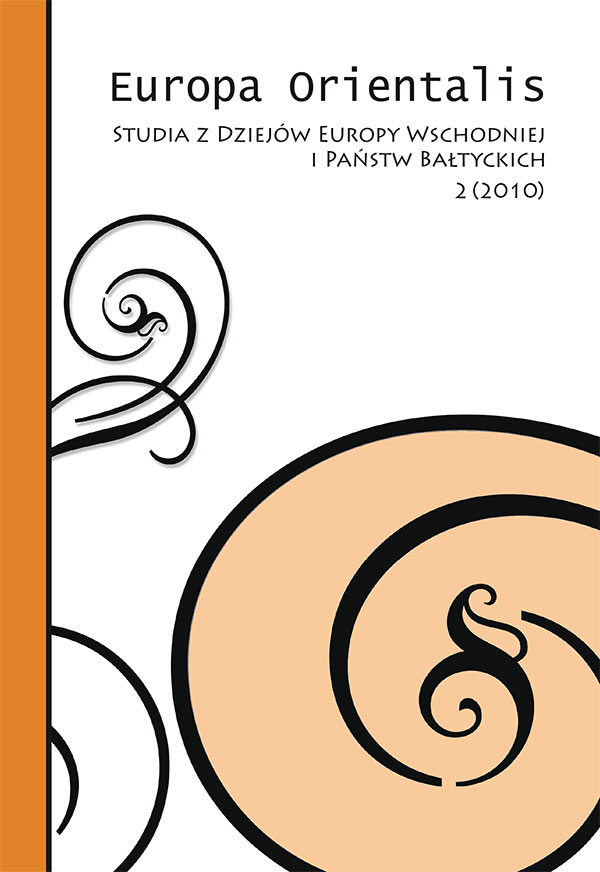Lithuanian-Belarusian sabotage against the Polish state between 1920 and 1923
DOI:
https://doi.org/10.12775/EO.2010.004Abstract
After the Peace Treaty of Riga had been signed, some Belarusian circles remained sceptical about the ensuing political situation and they planned to fight for the independent country. Similarly, the activists of Lithuanian national movement hoped that Vilnius, annexed by General L. Żeligowski, would be the capital city of their country. Thus, stirring up political and social unrest on North-Eastern territories of the Second Republic of Poland was in both Belarusian and Lithuanian interest. Thus, Lithuanians made Belarusian minority in Poland cooperate with them politically and militarily. Belarusian guerrilla groups, which were created so that they could participate in a future Polish-Lithuanian war, immediately started acts of sabotage. In Białystok and Hrodna Regions they attacked police stations, forester’s lodges, manor houses and shops. Belarusian and Lithuanian armed forces did not, however, take any military actions together. On 15th March 1923 the Council of Ambassadors (of the League of Nations) recognised the demarcation line as the border between Poland and Lithuania. As a result, Lithuania stopped using Belarusian guerrilla groups to undermine the social and political order in Poland. Consequently, the sabotage units, deprived of Lithuanian military and political support, were eliminated by Polish authorities.
Downloads
Published
How to Cite
Issue
Section
Stats
Number of views and downloads: 877
Number of citations: 0



